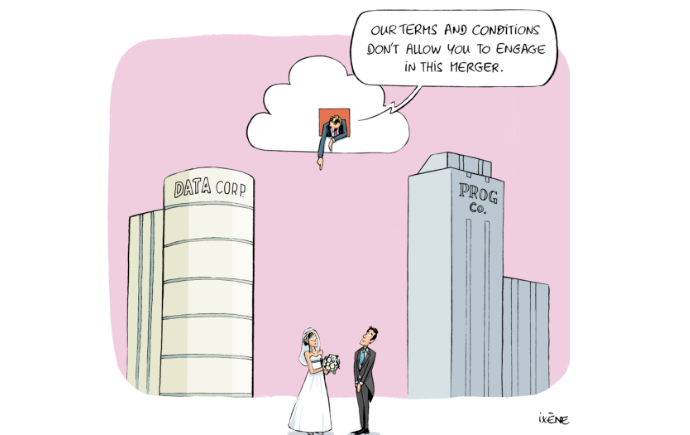Fair Principle 6: Contractual terms for licensing and subscriptions shall be free from geographic and entity restrictions.
Fair Principle 6: Contractual terms for licensing and subscriptions shall be free from geographic and entity restrictions.
 augustus 10, 2022
augustus 10, 2022 Business users associations Beltug, Voice, Cigref and CIO Platform Nederland call for a balanced cloud market: 11 fair principles to unleash Europe’s digital potential. Fair principle 6 calls for contractual terms for licensing and subscriptions to be free from geographic and entity restrictions.
The cloud has no limits and Europe ensures free movement of goods, services, capital and people in a single EU internal market but vendors in the business software and cloud services industry don’t market their solutions with this open attitude and mindset.
Business software and cloud services are generally operational cross-boundaries and do not take into account any legal entity context but the vendors of these solutions usually limit the perimeter of their licenses. Every time a customer changes his business or geographical perimeter a new contract has to be renegotiated and creates a new opportunity for the vendor to modify the terms and conditions or to increase the price.
It’s not the vendors role to define the expected use and the area in which the business software and cloud service can be used. Customers are responsible to only grant access to users that are part of customer’s enterprise and deploy the solution in adherence with technical requirements. As such there should be no restriction imposed by the vendor regarding geography or legal entity.
Commercial terms are very seldomly based on specific locations of the business users or the legal entity the business users belong to. Vendors are not adversely impacted with such metrics. The same applies for metrics based on compute power, capacity, storage, etc. The result of expansion of the organization or geography will impact the vendors revenue in a transparent and logical manner.
Customers purchasing licenses, subscriptions or services should have the ability to act on behalf of the enterprise they are part of. Customers undertake mergers and acquisitions, have subsidiaries in different countries and need to be agile, including the software they need. Licences need to be able to travel with the production or sales between different sites, independent of location.
Vendors should not restrict the usage to only the contracting entity and customer should have flexibility to use the purchased subscriptions within the same enterprise, group of companies that form a holding or group of entities with the same objectives or otherwise connected. All current and future entities should be covered, as long as they are majority-owned.
Geographic and entity restrictions work against central purchasing or IT departments who are a separate legal entity for purchasing and distributing licenses within an enterprise or group. Some of the benefits of structuring companies are simply annulled by limiting the use of licences based on geographic and entity restrictions.
Conclusion? Software, cloud services and their data are utilities that are available on demand wherever end users want to consume them. The sixth principle guarantees this transparent use; contractual terms for licensing and subscriptions shall be free from geographic and entity restrictions.
